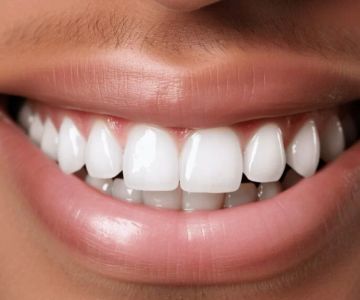Fluoride and Its Role in Oral Health
Fluoride is a naturally occurring mineral that plays a crucial role in maintaining oral health. It has been extensively studied and its benefits for preventing cavities are well-documented. Different forms of fluoride are available, and choosing the right one depends on individual patient characteristics. For instance, fluoride toothpaste and mouthwash are common over-the-counter options, while dentists can apply stronger concentrations in the form of foam, varnish, or gel.
The Importance of Fluoride for Different Age Groups
Infants and children need an appropriate amount of fluoride, especially between 6 months and 16 years. The American Dental Association provides specific guidelines to avoid excessive fluoride intake in this age group. For adults, fluoride is still beneficial, especially if they have conditions such as dry mouth, gum recession, or dental restorations that increase the risk of cavities.
Fluoride Treatments and Their Procedures
Dentists or hygienists can administer fluoride treatments during routine dental exams. These treatments usually take less than five minutes and can involve applying gel, foam, or varnish to the teeth. The frequency of these treatments depends on individual oral health needs.
Risks and Benefits of Fluoride
Fluoride offers numerous benefits, including strengthening tooth enamel, reversing early decay, and preventing the growth of cavity-causing bacteria. However, it can be toxic at high doses. The most common side effect is fluorosis, which can cause tooth discoloration, but this is often a result of excessive fluoride consumption, especially during tooth development. With proper use and supervision, fluoride is safe and effective.
Fluoride in Public Health and Research Findings
Community water fluoridation has been recognized as one of the most important public health achievements. Studies show that it significantly reduces the incidence of cavities in both children and adults. Research also supports the cost-effectiveness of fluoride in preventing tooth decay. Additionally, various studies have investigated the efficacy of different fluoride treatments and their applications for different age groups and specific dental conditions.
Addressing Concerns and Misconceptions
Despite the proven benefits of fluoride, there may be concerns or misconceptions. It's important to have accurate information and consult with dental professionals. For example, fluorosis is typically mild and asymptomatic, and does not affect tooth function in most cases. Moreover, there is no evidence of associations between fluoride use and serious health disorders.
In summary, fluoride education is essential for understanding its role in oral health. By being informed about the benefits, appropriate usage, and potential risks, individuals can make informed decisions to maintain a healthy smile. Fluoride is a powerful tool in the fight against cavities, and its proper utilization, along with good oral hygiene practices, can lead to better oral health throughout one's life.

 Westgate Dental Arts
Westgate Dental Arts Coventry Family Dental
Coventry Family Dental Familia Dental
Familia Dental Dr. Daniel S. Fife, DDS
Dr. Daniel S. Fife, DDS Dentistry At Suburban Square: Michael I. Wollock, DMD
Dentistry At Suburban Square: Michael I. Wollock, DMD Comfort Care Dental
Comfort Care Dental The Importance of Oral Health Education During Pregnancy for a Healthy Pregnancy
The Importance of Oral Health Education During Pregnancy for a Healthy Pregnancy Why Skipping Dental Checkups Can Lead to Bigger Oral Health Problems
Why Skipping Dental Checkups Can Lead to Bigger Oral Health Problems Advantages of Porcelain Dental Restorations
Advantages of Porcelain Dental Restorations Best Tips for Brushing Your Teeth Properly for Healthy Gums: Essential Techniques for Oral Health
Best Tips for Brushing Your Teeth Properly for Healthy Gums: Essential Techniques for Oral Health How Can Diabetes Cause Tooth and Gum Problems? Preventing and Managing Oral Health Issues
How Can Diabetes Cause Tooth and Gum Problems? Preventing and Managing Oral Health Issues Healthy Habits for Promoting Good Oral Health and Hygiene: Tips for a Healthy Smile
Healthy Habits for Promoting Good Oral Health and Hygiene: Tips for a Healthy Smile